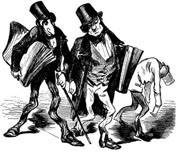
The Wanting Seed. By Anthony Burgess.
WHAT SEEMED ABSURD IN 1962 NOW APPEARS FRIGHTENINGLY QUOTIDIAN
Anthony Burgess is best known for A Clockwork Orange, his nightmarish 1962 novella in which the “ultra-violent” teenage Alex narrates his nocturnal exploits, providing lengthy descriptions of heinous crimes perpetrated by his gang of wilding thugs in a Britain of the near future. Stanley Kubrick popularized Burgess’s novella in his 1971 film, which became a cult classic. Nevertheless, The Wanting Seed, Burgess’s overlooked novel, published the same year as A Clockwork Orange, is far more enduring in its dystopian prescience; in fact, it would be an understatement to suggest that this Malthusian tragicomedy depicts a world terrifyingly familiar to the 21st-century reader.
Burgess imagines a future formed by the ideology of overpopulation alarmism — and it’s grim. Tristram Foxe, The Wanting Seed’s hapless protagonist, is a self-described Augustinian living in a Pelagian world. A history teacher at an all-boys high school, Tristram is introduced as he is being denied his long-awaited promotion to chairman of his department. His principal explains that what gets a man a job these days is not his qualifications, not how many degrees he’s got or how good he is at whatever it is he does. It’s his “family background,” a euphemism that refers to his marital status and the number of children he has. “You’re entitled to marry if you want to,” the principal informs him. “You’re entitled to one birth in the family, though of course the best people just don’t.”
Tristram has no living children of his own, his wife’s one allotted birth having ended in an infant death at the hands of doctors who are loathe to save a sick child because it means one more burden for society and one additional drain on the common good. “You just don’t seem to care about human life any more. Any of you,” charges Tristram’s wife, Beatrice-Joanna, whose son has just died in hospital. “We care about stability,” retorts the attending physician (in a literary hat tip to the World State from Aldous Huxley’s Brave New World). “We care about not letting the earth get overrun.” And then the doctor warns her: “Try to stop feeling like a mother. You’ve had your recommended ration. No more motherhood for you.” On her way out of the hospital, the grieving Beatrice-Joanna must pass anti-mothering propaganda posters (“Don’t Have Any More!”) put out by the Department of Contraceptive Research. Other posters encourage women to “further reduce their bustline” in order to rid the female body of its motherly aspects.
Burgess, writing in the early 1960s, presaged China’s draconian one-child policy, which the Central Committee of the Communist Party instituted in 1980, ostensibly to counter a devastating food shortage and famine. One-child families were rewarded — couples who abided were given a “Certificate of Honor for Single-Child Parents” — while parents with more than one child were humiliated, fined, and, in some cases, imprisoned. Though the Western world didn’t exactly follow suit, anti-child campaigns in most countries — especially in the United States, which chose to follow the Margaret Sanger script from 1973 onward — were highly successful in propagandizing the idea of limiting family size as a means to being “socially responsible.” To this day in many parts of the country, it is difficult to deny that large families still scandalize the average American Dick and Jane. In other words, as Burgess predicted, fecundity would be attacked on grounds that it’s an offense against the interests of a healthy society.
You May Also Enjoy
July 25, 1998, marked 30 years since the issuance of one of the most controverted…
If any of our readers had any doubts about what we had to say regarding John Roberts, they can now quietly lay them to rest.
Brownson argues that Man grasps the universal only through a particular (and inevitably divisive) set of loyalties, as opposed to a watery eclecticism.

